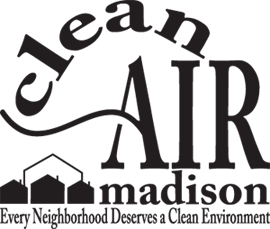Kipp has repeatedly claimed that it is a "good neighbor." But a good neighbor would gladly install equipment to reduce the pollution in the neighborhood, not ignore neighbors complaints and install systems and equipment that exacerbate the problem and may cause severe health problems.
Madison-Kipp has received hundreds of thousands of dollars from the city and state in low-interest loans and grants. It was permitted by the city to acquire the formerly commercial Madison Bus Barn property under a city-secured land contract and convert use to heavy industry. It benefits from the generous tax exemptions Wisconsin has extended to industry over the last decade; its property tax assessment is almost ludicrously low.
We who live in the area pay taxes to the city and state and expect a safe neighborhood in which to live. We expect neighborhood air to be safe for our children to breathe. Effective pollution-control devices are available for Kipp's die-cast machines and most of its other equipment.
We are not allowed to dump our garbage onto our neighbor's lawn. Why should Kipp be permitted to dump its hazardous by-products in our breathing space, soil, and water? Should a corporation that has been treated so generously by state and city be exempt from the good-neighbor policy? Successful "mixed use" does not entail allowing heavy industry to expand uncontrolled in a residential area. The success of mixed use relies on mutual consideration.
The Kipp problem is a microcosm of recalcitrance by many large American corporations that care more for money than about environmental or human healthand inaction or "cooperation" with business by the agencies that are supposed to regulate industry. Wisconsin's DNR used to be tough but fair with industry. During the 1990s, Wisconsin industry has learned that it can pollute with impunity. If you have experienced similar frustrating and dangerous situations, we'd like to hear how you've handled them.
Please contact us if you'd like to join our cause
